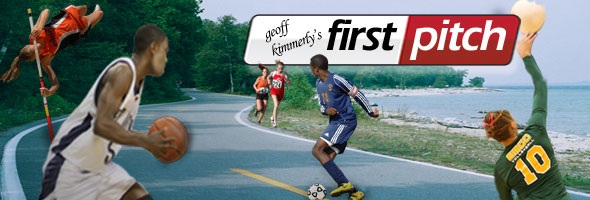
Things change; lessons are the same
February 29, 2012
Let's start with the obvious: High school sports have evolved a bit since 1927.
But the MHSAA Bulletin from March of that year -- dug up by one of our directors on another research pursuit -- reminds us how some of our challenges remain the same.
Below are a few excerpts from the section titled "Baseball and Sportsmanship." Keep in mind, baseball was the football and basketball of the first half of the 1900s. The 1927 New York Yankees arguably were the greatest baseball team of all-time, finishing 110-44 thanks to Babe Ruth, Lou Gehrig and others.
Those names alone make us think in a historical context -- which makes the parallel between today and the following that much more intriguing:
Baseball games furnish a difficult problem to schools in the matter of sportsmanship, spectator control and their education.
Many more people are familiar with the game of baseball and its rules than is true of either football or basketball. Consequently, they feel even more qualified to criticize.
In many places, absence of seating facilities bring the spectators into close proximity to players with the result that criticism of players and of the official and sometimes abusive remarks to the visiting team can occur. No school can hope to improve this situation by ignoring it.
The MHSAA Bulletin went on to cite suggestions for improvement that had been published by the Delaware association. Again, a sampling:
Treat the visiting team as guests, not as deadly enemies. Small youngsters often offend through ignorance. Educate them along this line.
Fair and impartial applause of good plays by either side should be encouraged in the student body, and the outside fans will soon fall in line.
"Razzing" or "riding" visiting players is poor sportsmanship.
Caution your boys to pay no attention to the "grandstand experts" who feel it their duty to offer suggestions as to the work of the team. They can sometimes do more harm in an hour than can be overcome in days of practice.
And a final note from the 1927 MHSAA on the subject:
An athletic contest properly staged and handled creates a favorable impression on the part of visitors toward your school and community. A game that deteriorates into a backyard squabble hurts not only the school and its executives, but the town as well.

One Community at a Time
July 24, 2012
In the northwest corner of Michigan’s Lower Peninsula there is a group of volunteers who are focusing on the character-building potential of youth and high school sports. They are teaching the principles and recognizing the people that make character education happen frequently and by design, rather than only rarely and by accident.
The group is known as Beyond The Scoreboard. It draws on resources from Character Counts, Positive Coaching Alliance and others; and it delivers character education through inexpensive workshops for athletes, coaches, officials, sports leaders and spectators.
Beyond The Scoreboard also conducts a Champions of Character Awards Dinner, the 8th Annual held June 11, 2012 in Petoskey. I’ve attended most and was the speaker in 2011. This year’s speaker was my counterpart with the Arizona Interscholastic Association, Commissioner Harold Slemmer.
At an event like this there are many moments that uplift the best of youth and school sports. Here are two from this year’s banquet:
-
When East Jordan High School runner Luke Hawley was thanking those who helped him be the kind of person who would be honored as the high school male athlete, he thanked many people, including the maintenance person who prepared the high school track. I had never before heard a high school student-athlete include a groundskeeper in his support group. And it told me a lot about this young man. He’s likely to be a good employee, spouse and parent someday.
-
When a member of the Petoskey High School football team was introducing his coach, Kerry VanOrman, who was being honored as the high school coach, he said the first thing Coach VanOrman would say to every player he greeted was a question about something other than sports; and he would be the same way to every player, no matter how skilled. He’s coaching more than a sport; he’s coaching kids. Helping them become better people.
After a single banquet, an attentive person could develop a game plan for character building for an entire season. Imagine all that’s been shared to improve youth and school sports after eight years! Congratulations to founder Jack Taylor, Executive Director Ron Goodman and all board members and volunteers.

